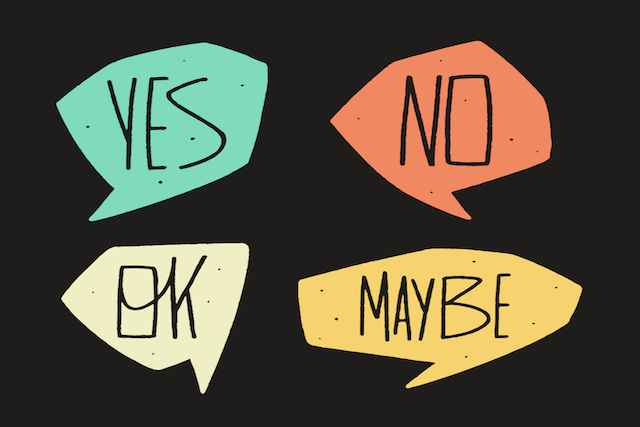What Is "Jaga Muka" And Why It's A Big Thing Among Asians
Saving face can be costly and sometimes, very complicated.
"I'll get the bill."
"Aiyo. Don't need lah. Let me do it."
Have you ever been in a situation where you're about to pay the bill but a family member or friend would "fight" as to who would pay for the meal?
This would go on for a few minutes before one of you offers to split the bill equally until eventually someone "wins" and pays the bill for everyone.
After this, the person on the receiving end is likely to politely refuse the person who paid and offers to pay back, but he or she would usually relent and accept the treat eventually.
Sounds familiar?
Why do we fight to pay the bill?
Most would say that it's because of the "face" (or air muka in Malay) value that is predominant in Asian cultures.
The concept of "face" has been said to be an integral part of the social structure in Asian culture and it is very closely related to shame.
To put it simply, the "face culture" refers to the embedded desire to avoid humiliation and embarrassment or maintain dignity and preserve reputation (or jaga muka in Malay) - whether it is one's own or other people's. This culture can easily influence our everyday interactions and communication.
In the case of paying bills, the person who paid the bill is perceived to be more well-off and generous, thus gaining a reputation for doing so.
However, say in a situation where a person loses control of his/her emotions or shows embarrassment in public, it is perceived as a negative display of behaviour. This is what we call as "losing face".
Remember the time when you got a scolding from your mother for throwing a tantrum at the shopping mall? She was probably upset that you've embarrassed her (as everyone would be looking at the kid who was crying) and made her "lose face" in the public.
We go to great lengths just to save face
As most Asian communities are collective societies, the concept of face is not just for individuals, but it also extends to families, schools, companies, and even the nation itself.
If something goes wrong, we tend to discuss them privately rather than in public spaces. There's also the tendency to suppress negative opinions and emotions about a particular person or subject as a sign of respect and to avoid causing shame or dishonour.
For instance, you may have food stuck in your teeth and it's not a pleasant sight. Yet, none of your friends who see it would you actually tell you about it, leaving you to discover it much later. Why? Because they don't want to make you feel embarrassed. Granted, it may be already embarrassing for you to have something stuck in your teeth without you realising it, but your friends probably didn't want to further embarrass you by pointing it out.
Meanwhile, in a workplace setting, your boss may refrain from reprimanding you in front of your colleagues, to ensure that you don't "lose face".
This "face culture" also explains why some people tend to say "yes" when they really mean "no", and vice versa
When you're invited to an event but you're reluctant to attend it, do you find yourself saying, "I'll think about it" or "Maybe", instead of an outright "No" for an answer?
Higher-context cultures tend to be more common among Asians, and the real message communicated is implied rather that explicitly stated in writing or when spoken. We're expected to be able to read between the lines.
In line with the concept of "face", some people may avoid directly and openly saying "no" to save face or give face.
Saying "no" is considered rude, and rejection is impolite and contradicts the principles of collectivism and group harmony.
On top of the fear of saying "No", face culture could also sometimes be an obstacle for someone who's seeking help
This concept has caused some people to even fear the idea of admitting their shortcomings or pointing out another person's faults due to fear of "losing face".
For example, it may be a norm in the West to seek professional help such as counselling when dealing with sensitive matters, but there is a nagging perception among Asians that frowns upon the idea of looking for an "outsider's help" as this could lead to "losing face".
There is an unwillingness to discuss or acknowledge problems openly due to fears of social stigma and shame as the society generally perceives the act of asking for help as a sign of weakness or incompetency.
However, it is also because of this "face" that we take pride in any kinds of achievements associated with us
As much as we try not to make someone "lose face", we also try to help people to "gain face" often, especially when we get to leverage on the person's increased face value.
Think about all the times we've celebrated the people who have done the nation proud — from sportspeople like Datuk Wira Lee Chong Wei and Datuk Nicol Ann David to young achievers such as Heidy Quah, who won the Queen's Young Leaders Award, and Nur Adlyka Ainul Annuar who discovered the evidence of black holes situated close to the Milky Way.
Their successes and achievements have helped them to gain their own face, and indirectly helped to increase the nation's face value as well.
On the extreme end, there have been instances when we are quick to "claim" the achievements of others even if they are only "Malaysian-born" or have lived all their lives outside of Malaysia and have almost little to no connection to Malaysia.
If we observe closely, there are so many things that we decide to do or not to do everyday because of face
Understanding how face culture works is not just important for interpersonal communication between two individuals, but also for different levels of communication including at professional settings or even for diplomatic ties between nations.
While we put a great amount of effort to save our face and preserve our honour, sometimes, there is a great cost to it. From little things such as deciding on a place to eat lunch with your colleagues or clients to deciding to get something you could not afford and eventually going into debt — all because you cared too much about wanting to raise your prestige or reputation.
The cost of saving or gaining face may not always be tangible, but it is almost a definite that there is a cost to face-saving.
No doubt, the face culture is deeply ingrained in our Asian culture and etiquette but perhaps it's time for us to rethink how we value face and if it's worth all the complications and trouble, just because we want to save face.







